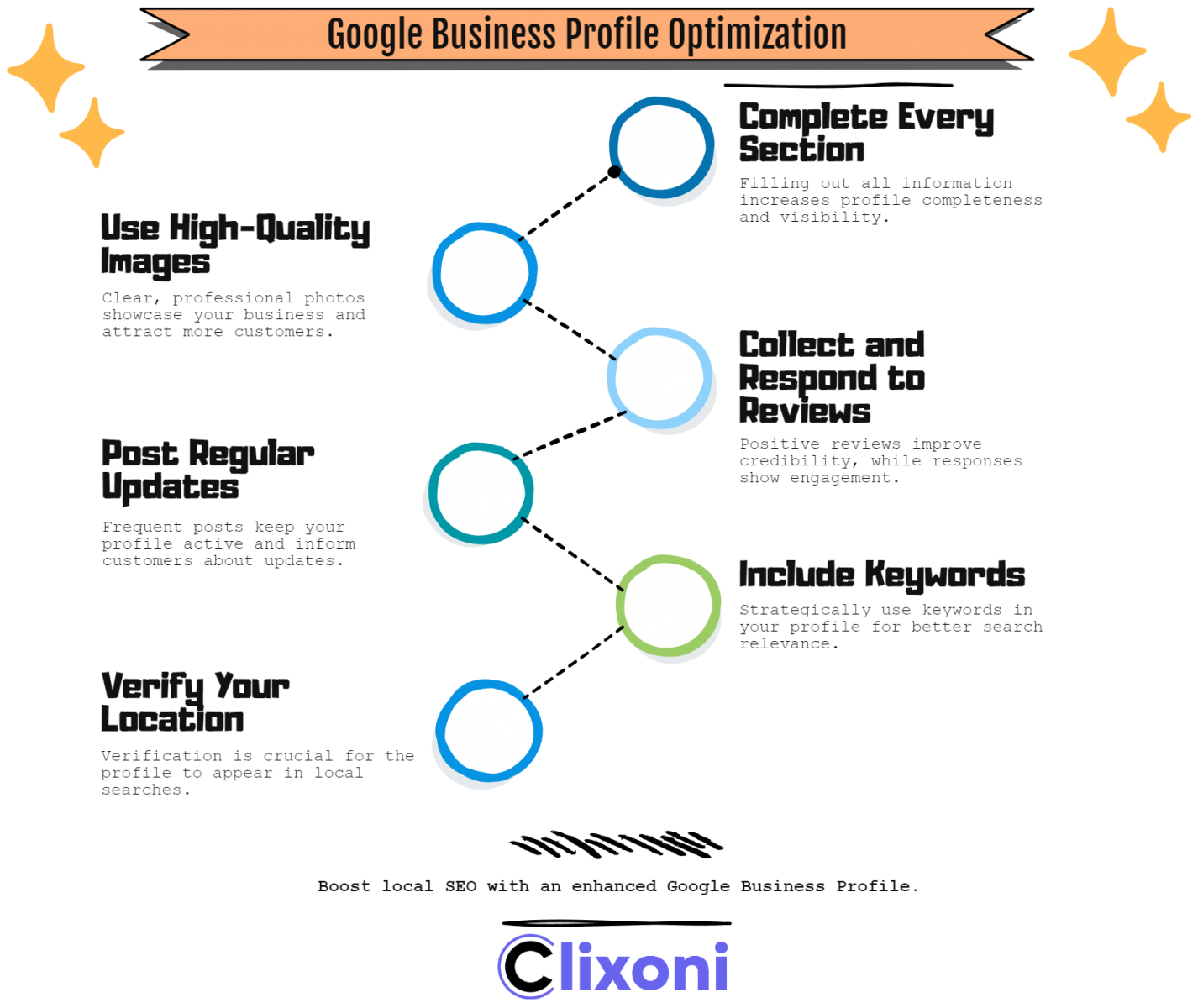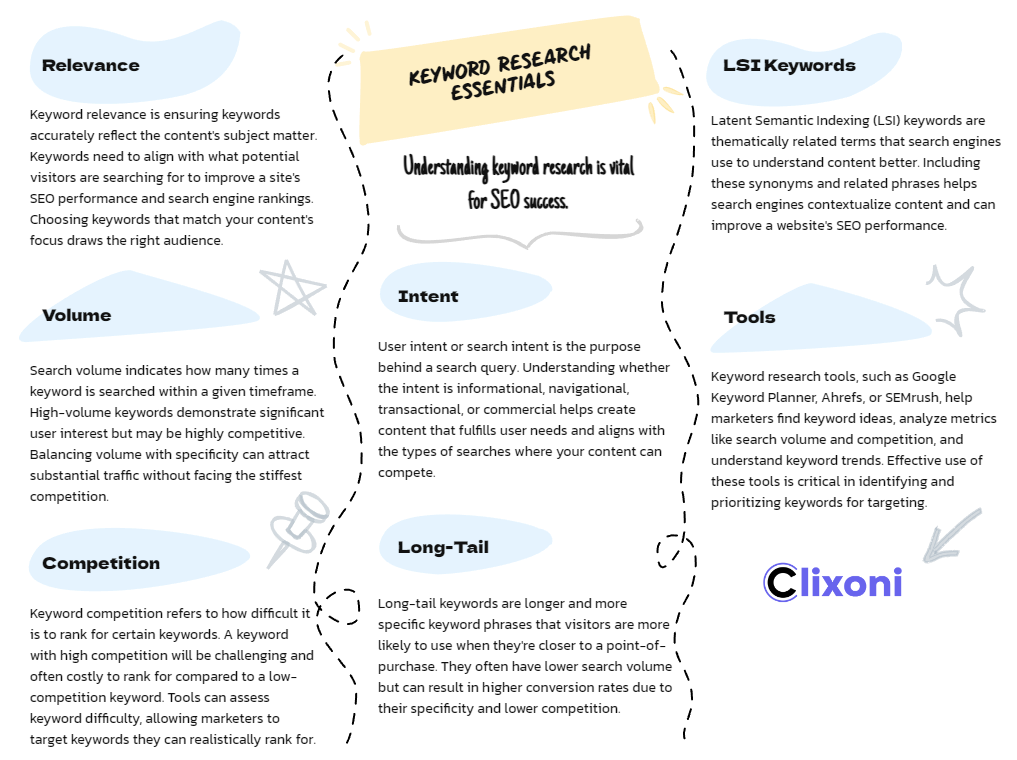Local SEO Mastery: Tips and Tricks to Skyrocket Your Local Rankings
February 20th, 2024

Are you looking to dominate the local search rankings and attract more customers to your business? Local SEO mastery is the key to boosting your online visibility and attracting potential customers in your area. With the right tips and tricks, you can skyrocket your local rankings and outshine your competitors.
In today's digital age, having a strong online presence is crucial for businesses to thrive. Your Google Business Profile plays a vital role in attracting local customers and establishing credibility in your community. Understanding local search and your potential customers is essential for crafting an effective SEO strategy tailored for your target audience and their search intent.
In this article, we will explore the essential tips and tricks for mastering local SEO and skyrocketing your local rankings. From optimizing your business listing and leveraging Google My Business to implementing effective SEO strategies and managing online reviews, you will discover the key strategies to elevate your local online presence.
Google Business Profile: Your Online Presence
Optimizing your online presence as a local business is paramount, and it starts with setting up a Google Business Profile (GBP).
A GBP is more than just a business listing; it's a dynamic snapshot of your business that showcases your offerings and entices potential customers. Utilizing this free platform is a crucial step in local SEO.
To begin, you must claim and verify your business. This ensures Google recognizes your establishment as a legitimate entity.
Once verified, it's time to make every detail count. Fill out all the pertinent information such as location, business hours, services, and appealing photos.
Your Google Business Profile becomes a pivotal point for customers who search for businesses like yours, especially in local search results.
An optimized GBP appears in Google's local pack, grabbing immediate attention with crisp descriptions and a trove of customer reviews.

Remember, positive reviews can significantly influence potential customers, while negative reviews can offer insights for improvement.
Google Business Profile is not just a directory spot—it's your business's digital storefront. Use it wisely to reflect your brand accurately, and watch your local search engine rankings climb.
Understanding Local Search and Your Potential Customers
Local SEO is indispensable for businesses with physical locations, aiming to channel more organic traffic from searches conducted by customers in proximity.
When people make search inquiries with local intent, it suggests they are inclined to make purchases in their immediate area.
Tapping into this opportunity enhances your business's visibility within the search engine results, particularly for those seeking nearby solutions.
To refine your focus on potential customers who are ready to engage with your business, it's vital to appreciate the demographic nuances of your target neighborhoods.
Tools like Claritas Zip Code Look-up can offer insights relating to median income, age, and spending habits specific to areas you serve, enabling you to tailor your content and offerings appropriately.
Having a robust understanding of these aspects is key in not only reaching but also effectively communicating with your local audience.
Local search platforms such as Moz, Yext, and Chatmeter simplify the process of managing business listings across multiple directories, which is pivotal in ensuring your business is well-optimized and easily discoverable in local search results.
Remember, with voice searches constituting 20% of all Google queries, optimizing for local voice searches is an added avenue for making your business stand out in the digital realm.
Of course many busy business owners find they lack the time to setup and manage a GBP listing, which is why we include it as part of our Brand Building service.
Identifying Your Target Audience
Identifying the title of the area you're targeting, such as "Urban Elders" or "Aspiring A-Listers," is instrumental in aligning your content and marketing efforts with the local audience's expectations and lifestyles.
Crafting reader personas can bring your target audience to life, helping with the creation of content that hits the sweet spot for those you aim to attract and retain as customers.
This segmentation fosters a more personalized approach, ensuring that your SEO strategies resonate deeply and drive meaningful engagement within your community.
A strong local search presence not only boosts visibility but can also significantly propel sales and overall performance, as consumers increasingly seek out local brands and services.
This pursuit of local businesses means having a keen grasp of who your potential customers are and what they need is no longer just an advantage—it's a necessity.
Understanding Search Intent and Search Terms
Long-tail keywords present lower competition and encapsulate clearer search intent, which can make them invaluable for businesses aiming to rank in local search results. Understanding search intent is about deciphering the purpose behind a searcher’s query and then crafting content that aligns perfectly with what they are seeking.
For instance, a search for "best coffee shops near me" signals an intent to find and possibly visit a local cafe, whereas "how to make espresso" might indicate a desire for instructional content.
Identifying these intent-driven search terms, especially those laced with local intent, is pivotal in developing local SEO strategies that land your business at the top of search results.

Keyword research tools aid in discovering these relevant search terms and phrases, allowing you to prioritize them in your SEO efforts.
You can also map out implicit keywords, which are not directly stated in searches but are understood to have local intent.
For example, someone searching for "pizza" late at night is likely looking for delivery options in their vicinity.
By targeting keywords and crafting content that anticipates these needs, you boost your chances of connecting with nearby consumers who are ready to convert.
Optimizing Your Business Listing for Local SEO
When focusing on local SEO, optimizing your business listing is a critical step in aiding your visibility to potential customers in your region. A well-crafted Business Profile acts as a foundational touchpoint between your company and local search users. Here are essential aspects to optimize:
Choosing the right business category
Your Google Business Profile's primary category should directly reflect your main line of business, as this choice significantly impacts your local pack ranking.
The inclusion of relevant two to three secondary categories can also expand the scope of searches and keywords you rank for, but it's important to remain specific and true to your offerings.
Misrepresenting your business by adding unrelated categories for SEO leverage is a contravention of Google's guidelines and can harm your credibility.
Selecting relevant keywords for your business
Incorporating the right keywords into your Google Business Profile is instrumental to matching with appropriate local searches. The description field of your profile is an ideal place to include local keywords that reflect your business activities and attract your target audience.
Utilize keyword research tools to uncover phrases that resonate with local customers seeking your products and services. Additionally, include these keywords naturally in the content throughout your profile, making sure they align with user search intent.
Importance of business hours and accurate information
The accuracy of your business information, especially hours of operation, cannot be overstated.
Updated hours on your Google Business Profile and other business listings reassure customers that you are open for business when they plan to visit, fostering trust and reducing the likelihood of negative reviews due to misinformation.
Moreover, ensuring all details such as address, phone number, and services offered are current facilitates higher visibility and better search rankings in local search results.
Regularly revisiting your business listing to adjust for holidays, special events, or changes in hours is a best practice that can significantly influence your business’s local SEO success.
Leveraging Google Maps and Physical Locations
Visibility on Google Maps is vital for local businesses seeking to attract nearby customers. To heighten your presence:
- Embed a Google Map on your business's contact or directions page. This action reinforces your location to Google and can aid in your local ranking performance.
- Ensure that your Google Business Profile (GBP) is packed with local keywords to improve both your local pack rankings and Google Maps visibility.
- Fill out your GBP completely, not leaving any section incomplete. Detailed, accurate profiles give users in-depth information and can positively influence your ranking on Google Maps.
In addition, claim and update your business information across other important local listings and social profiles. This effort not only boosts your online visibility but also establishes your business as a credible entity, reinforcing the location information that Google has indexed.
Encouraging Happy Customers to Leave Positive Reviews
Positive reviews have an immense impact on your local search engine rankings and can be the deciding factor for many potential customers. Here's why they are impactful and how to encourage them:
- Online reviews are highly trusted, with a vast majority considering them as influential as personal recommendations.
- Actively seek reviews from your customers, as they're a known ranking factor and contribute significantly to local visibility.
- Aim to gather at least ten 5-star reviews but prioritize a continuous flow of feedback to maintain a positive online reputation.
Here are some ways to encourage customers to leave reviews:
- Ask satisfied customers to share their experiences online immediately after a purchase or service fulfillment.
- Provide simple, direct links to your GMB review page in transactional emails or via SMS.
- Ensure that the process for leaving a review is as straightforward as possible.
Remember, the recency of reviews matters. Consistently encourage customers to leave feedback so that your business always has a stream of recent, positive reviews. This not only affects your search rankings but also sends a message to potential customers that your business consistently delivers quality service and customer satisfaction.
By effectively leveraging Google My Business, harnessing the power of Google Maps, and accumulating positive reviews, you can significantly enhance your local business's visibility in search results, drawing in more customers and growing your enterprise.
Implementing Effective SEO Strategies for Local Rankings
Local businesses vying for the top spots in search engine rankings must keenly implement tailored SEO strategies that cater to their unique needs.
Given that 46% of Google searches have local intent, the right local SEO tactics can markedly improve a business's visibility and, by extension, its chances of attracting more customers. A strategic approach to local SEO encompasses a multitude of actions:
- Local Keyword Research: It is crucial to identify and target keywords that hold the promise of driving highly specific local traffic. This research entails discovering search terms that potential customers use when looking for services or products in the area, and seamlessly integrating them into your website's content, including title tags and URLs.
- Google Business Profile Optimization: As the #1 ranking factor for local searches, your Google Business Profile must be perfected. This means ensuring all business information is accurate, particularly the name, address, and phone number (NAP), as consistency across the web is a pivotal ranking signal.
- Local Citations: Steady NAP information across business directories cements your online presence and boosts local search rankings. Ensure your business is listed in relevant directories and that the information is consistent with your Google Business Profile.
- Local Link Building: Garnering inbound links from other local businesses and directories can elevate your search engine rankings, as these are signals of your website's credibility and relevance to the local area.
- Monitoring and Measurement: It’s imperative to measure and keep track of local SEO efforts. Use analytics to determine which strategies are paying off and fine-tune your approach accordingly.
Understanding ranking factors for local search
Local SEO has unique ranking signals, and grasping them is key to formulating a successful strategy. These include:
- Location Proximity: The closer a business is to the searcher, the more likely it is to show up in local search results.
- NAP Citations: Accurate and widespread listings with consistent name, address, and phone number information across the web boost Google’s confidence in displaying your business.
- Google Business Profile Listing: A complete and optimized listing can improve visibility in local search engine results and Google Maps.
- Keywords: Incorporating relevant keywords that align with search intent into your online content is essential.
- Online Reviews: The quantity, quality, and consistency of reviews can influence rankings. Positive sentiment in reviews can also enhance trustworthiness.
Understanding these ranking factors and optimizing for them is a critical step towards enhancing local search visibility.
Leveraging organic search and inbound links for local SEO
Organic search remains a vital channel for local businesses. To capitalize on organic search:
- Optimize On-page Content: Employ traditional on-page SEO tactics with relevance to local search terms.
- Mobile-friendliness: With a significant number of local searches coming from mobile devices, having a mobile-optimized website is obligatory.
- Map and Location Information: Embedding a map and adding location-based information helps in establishing local relevance.
- Quality Backlinks: Local link building by acquiring links from authoritative local sources can strengthen your SEO efforts.
Organic search results are not the only essential elements; the Map Pack, prominently featured in local searches, is crucial too. Achieving a balance between ranking in the Map Pack and organic listings ensures you are visible to the large share of users who rely on Google to find local business information.
By concentrating on these elements, businesses can cultivate an effective local SEO strategy that caters to search engines and fulfills the needs of local searchers. In turn, this can lead to improved rankings, increased in-store foot traffic, and an overall growth in the business.
Managing Online Reviews and Handling Negative Feedback
Online reviews play a pivotal role in the operations and reputation of a local business. They serve as social proof to potential customers, with the power to heavily influence their decisions. Moreover, search engines take online reviews into account as a significant ranking factor, especially for local search results, which makes managing these reviews an indispensable component of local SEO.
A local business must engage in a continuous cycle of acquiring and managing online reviews to maintain a robust digital presence. Persistent attention to customer feedback, coupled with a commitment to excellence in products or services, can amplify the chances of receiving positive reviews. However, in the business landscape, encountering negative feedback is inevitable. Statistics suggest that most customers expect businesses to respond to such feedback within a week, reflecting the importance of a proactive and professional strategy for managing online reviews.
Importance of online reviews for local rankings
Positive online reviews can substantially improve a business's visibility in local search results. For instance, Google reviews are believed to exert the most significant influence on Google's local search rankings. The inclusion of positive user-generated content via these reviews not only enhances credibility but also indicates to search engines that a business is valued by its community.
Encouraging customers to leave their thoughts on prominent review platforms like Google My Business and Yelp can lead to a strategic advantage in SEO performance. As much as 85% of customers invited to leave a review are likely to contribute their experiences. Businesses can leverage this potential by consistently reminding customers to share their opinions, which feeds into the cycle of trust-building and online visibility.
Strategies for dealing with negative reviews
Despite the best efforts put into service and product excellence, negative reviews will occur. To manage these effectively, responding swiftly in a professional and empathetic manner is key. A response to a negative review is a chance to showcase customer service commitment and can often mitigate potential adverse effects.
Businesses can consider the following strategies for tackling negative reviews:
- Timely Response: Aim to respond to negative reviews within a week, as this is the period during which customers expect acknowledgment of their concerns.
- Professional Engagement: Address customer grievances with respect and without defensiveness, to demonstrate a service-oriented approach.
- Resolve Issues: Whenever possible, provide a solution or invite the customer to resolve the situation offline, to show a genuine commitment to customer satisfaction.
- Learn and Improve: Use negative feedback as an opportunity to improve, making operational or product changes as necessary.
Positive incentives can also play a role in securing more favorable reviews. Offering discounts or special offers to customers who leave a review could encourage feedback that may otherwise have been left unshared. However, such incentives should always be used ethically and without the expectation of only positive reviews.
Above all, focusing on delivering remarkable services leads to customer happiness, which is the most natural and effective deterrent against negative reviews.
By embracing the importance of online reviews and implementing a thoughtful approach to reputation management, local businesses can enhance their search engine ranking, attract a broader customer base, and foster a more connected community.